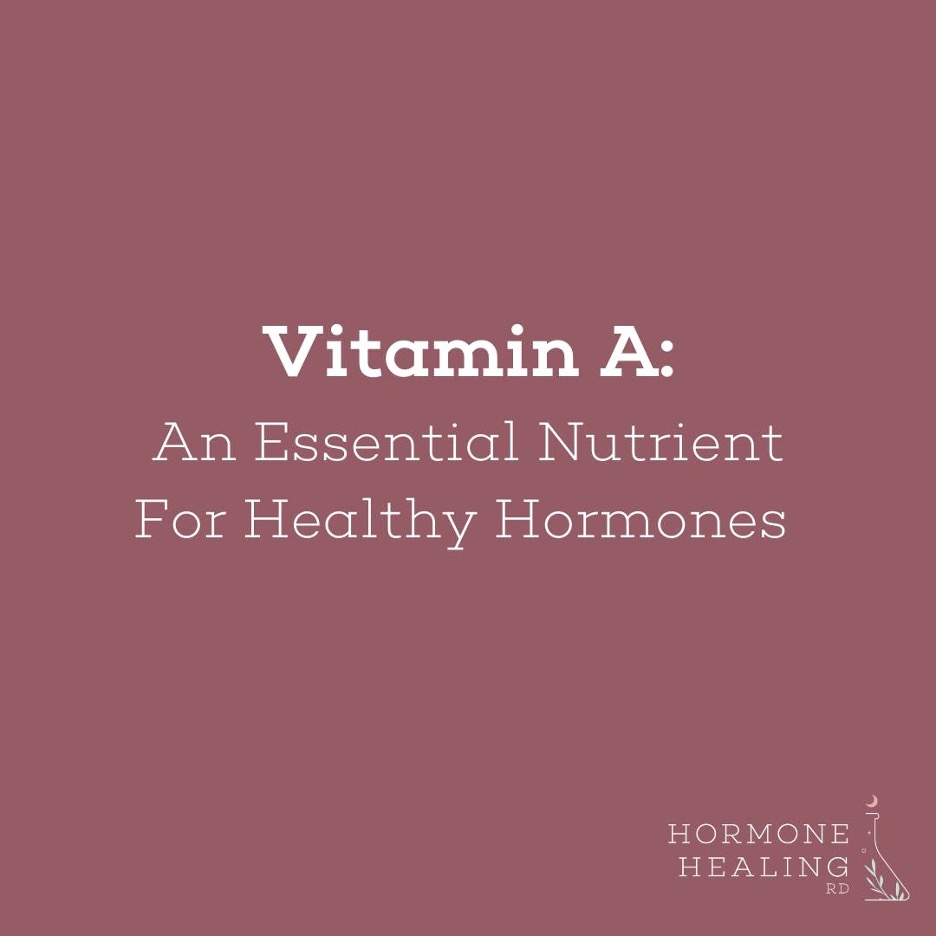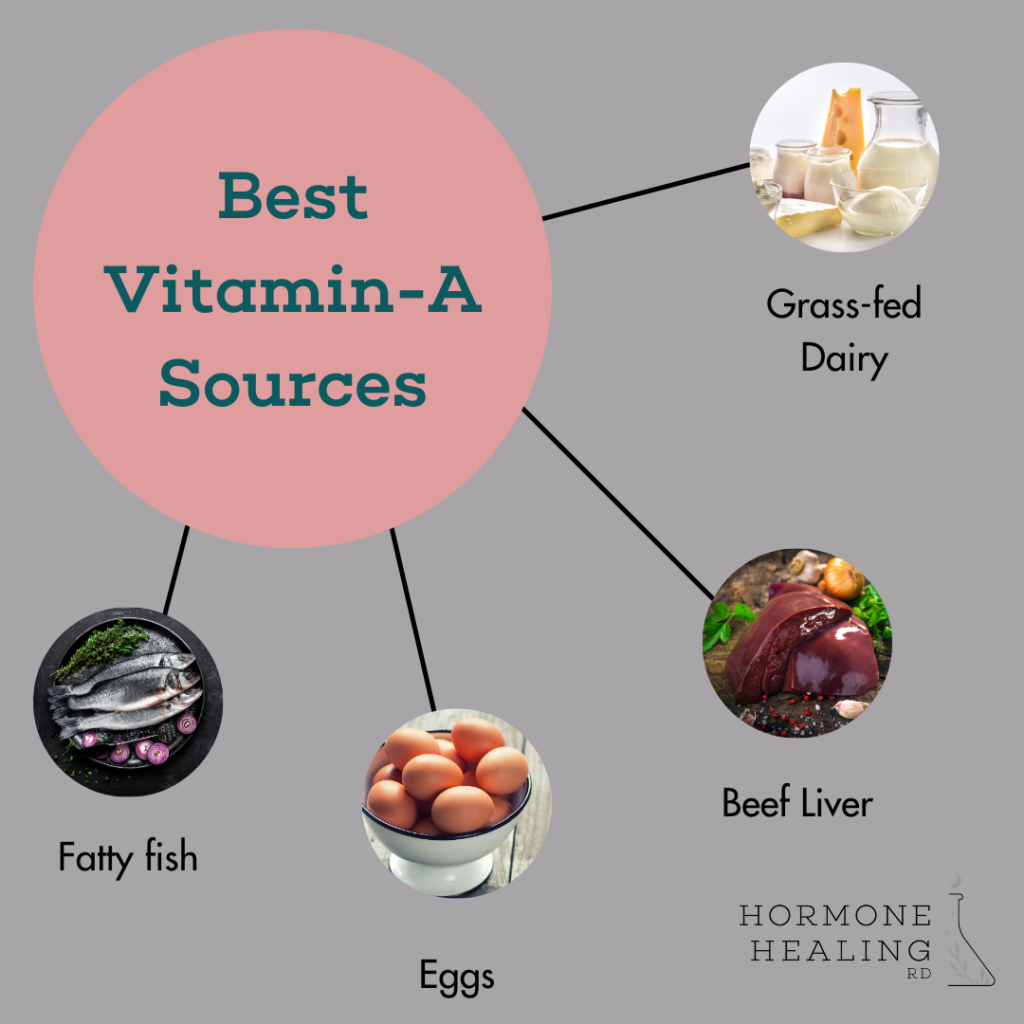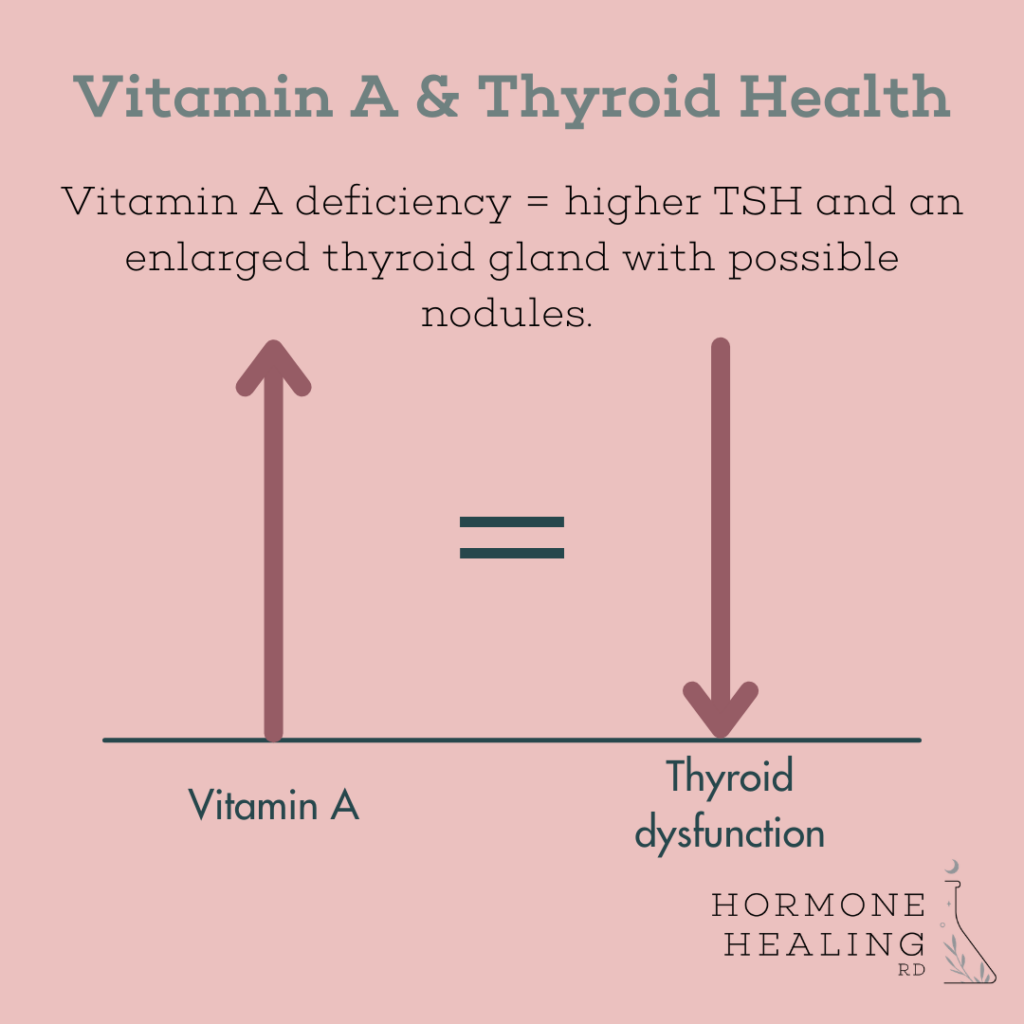Many health experts talk about vitamin D and vitamin B12, but what about vitamin A? Struggling with low energy and low vitamin D levels? Vitamin A is needed to absorb and convert vitamin D in the first place properly. We also need vitamin A for our metabolism to work correctly and to convert thyroid hormone. Most health information out there misses the mark and has people focusing on surface-level things vs. actually getting to the root. A lack of education around the importance of vitamin A (as well as magnesium, copper, and minerals in general) is a huge reason. Let’s dig in!

Vitamin A & Vitamin D
Our vitamin A status has a significant impact on our vitamin D levels. This is one of many reasons I think vitamin D supplementation is way oversimplified (more on this in the future). For our bodies to properly use vitamin D, we need vitamin A to activate our cells’ vitamin D receptors. Suppose you’re taking thousands of IUs of vitamin D and haven’t seen much improvement in your levels. In that case, it could be that your body is lacking the other nutrients (vitamin A, magnesium, and copper) to use that vitamin D properly.
The human body is complex. Nothing works in isolation, especially vitamins, minerals, and hormones. Taking one supplement and not considering what other nutrients and hormones (both reproductive and stress) impact that lab test result shows a lack of understanding of how the human body works. If we take too much vitamin D, this can lead to even lower vitamin A levels, further exacerbating the low vitamin D issue. When in doubt, add vitamin A-rich foods to your diet. Vitamin A is in animal foods such as fatty fish, eggs, liver, and dairy products.

Vitamin A & Thyroid Health
Vitamin A deficiency aggravates any thyroid dysfunction that is caused by iodine-deficient diets. Similar to how it acts with vitamin D, vitamin A helps activate thyroid receptors. It also helps the thyroid product adequate vitamin A and converts it from T4 (inactive form) to T3, the active form that is then utilized inside our cells. Vitamin A has been shown to help reduce TSH (thyroid-stimulating hormone). Vitamin A deficiency aggravates thyroid dysfunction caused by iodine-deficient diets.
Research on animals has shown that a vitamin A deficiency leads to higher TSH and an enlarged thyroid gland with possible nodules. When given vitamin A, TSH goes down, thyroid gland size decreases, and overall thyroid function in the body improves. This is powerful! We need adequate thyroid hormones to ovulate, make enough progesterone, and have balanced hormones. We should all care about thyroid health.

Vitamin A & Anemia
Vitamin A is also vital for iron levels. It helps get iron loaded into hemoglobin, where 70-80% of it lives. It also helps protect our bodies from too much iron since it is a powerful antioxidant. Vitamin A is essential for converting copper into ceruloplasmin, which allows us to use copper throughout the body. If you read my last two newsletters, you know how most iron deficiencies are really copper deficiencies.
It also turns out that vitamin A is vital for moving iron out of the liver and controlling that process. Low vitamin A can lead to high amounts of iron stored in the liver, negatively impacting thyroid hormone conversion, estrogen detox, and the hundreds of other essential functions the liver performs.
How To Get More Vitamin A
Vitamin A is a fat-soluble vitamin, which means we need to get it from foods with saturated fat, and we need fat to absorb it properly. It’s best to get vitamin A in animal food form. The main reason for this is because it gives us retinol. Retinol is very different from beta carotene, which is the type of vitamin A found in plants. Our bodies have to convert beta carotene into retinol in the body, which varies from 5-65% in humans. It’s also been shown that too much beta carotene can limit the conversion into vitamin A in the body. Here are the best forms of vitamin D:
Vitamin A is an essential nutrient for hormone health. Increasing your vitamin A intake could help to activate Vitamin D, stabilize thyroid-stimulating hormone, and increase iron transport within the body. I hope this is helpful and encourages you to boost vitamin A-rich foods in your diet. To learn more about how certain vitamins and minerals impact your hormones, check out our Master Your Minerals course—in which we give you the tools to build a personalized protocol based on your own HTMA results.
